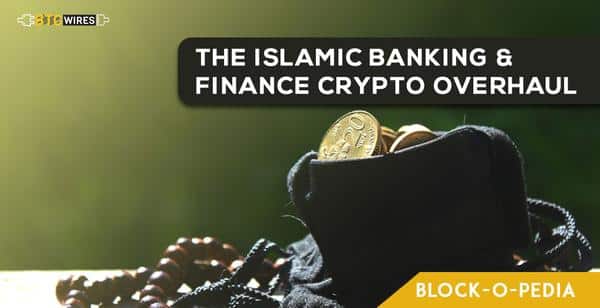BTC Wires: Islam, the world’s second-largest religion is also the

BTC Wires: Islam, the world’s second-largest religion is also the fastest growing religion in the world. Islam offers its own sui generis banking and finance popularly known as Islamic Banking and Finance.This growing financial system is based on fundamentals which originated from the Holy Quran and ahadith where activities involving riba (interest), gharar (uncertainty) and maysir (gambling) are strictly forbidden. More innovations will take place as the Islamic Banking and Finance Industry continues to grow, and one of the recent innovations that has taken the world by storm amongst others include the developments around blockchain such as cryptocurrencies.Bitcoin will be assessed from four angles to analyze if Islam permits the usage of bitcoin namely value of money, payment network method, concept of gharar and serving the real economy. Islam operates on three elements, viz mal(wealth), taqawwum(legal value) and thamaniyyah (monetary usage) for value of money.
Bitcoin, tends to possess both the features of mal and taqawwum, but not thamaniyyah. Bitcoin probably misses the mark from the perspective of money. In Islam, bitcoin can be deemed as halal (permissible) from the payment network method as its practices tend to go beyond what conventional banking can offer. Bitcoin unlike modern money, is not based on debt but instead it is based on proof of payment. On the flipside, elements of gharar do exist, being rather volatile in the past leading to price speculation and with no authoritative central body. This contradicts with one of the main pillars of Shariah compliance.
Hence, before purchasing, investors and users must understand the risks involved in them and form an action plan for the possibility of bitcoin failures, for bitcoin to be halal.
As far as from the perspective of serving the real economy is concerned, it is noted that the current uses of bitcoin and cryptocurrency investments do not serve the real economy, and do not promote the real growth of an economy. Various forms of Shariah-compliant social cryptocurrency, blockchain etc. are fast emerging, as global cryptocurrency, blockchain etc. is expanding into Muslim-majority markets such as the Middle East, Indonesia, Malaysia and other predominantly Muslim regions. Presently, there is no consensus of opinion among Islamic scholars on whether cryptocurrency and peer-to-peer payment systems like bitcoin are Shariah-compliant.
Instead, there is still an ongoing debate on this particular matter. Although the view that its usage is forbidden from an Islamic perspective are not set in stone, at the moment the Islamic Banking and Finance Industry should not consider its use in exchange unless there is a specific need until a regulated and transparent framework is established.
